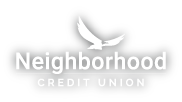Money Tips for the College Bound

By Jordan Ottaway
August is upon us and that means you soon-to-be college students are dorm shopping and getting prepared to move to campus. It wasn’t that long ago that I was a student at the University of North Texas so I know the excitement, nerves, and anticipation of starting this new chapter of your life.
Living on your own comes with more responsibilities. Financial responsibilities. While you may think that I’m talking about tuition, books, and housing, I’m really talking about your personal finance and day-to-day money responsibilities.
Come along because these are some good tips that I think will help this transition be much easier.
Pick the right credit card
Now that you’re an adult, you’ll start getting letters in the mail asking you to apply for a credit card. Despite what you’ve probably heard people say, having a credit card is beneficial (when used responsibly) and helps you build credit for when you need it. When you get your first apartment, the leasing office will look at credit to determine your deposit.
However, you need to pick the right credit card for your needs. There are cards out there for those wanting to establish credit that are aimed specifically for college students.
While you’re shopping around, take a look at this article I wrote about what you need to know before getting that first credit card.
Watch your spending
In other words, get in the habit of keeping a budget so you can always know where your money is going. You know you’ll be having to pay rent, books, tuition, and other fixed costs, but keeping a budget will help you keep your other expenses (going out, food, shopping, etc.) in check.
I’m not going to lie, this was difficult for me to get in the habit of doing, but once I did I felt like I wasn’t fighting with my account balance anymore. I saw that I was going out to eat way too often, so I decided to be better about buying my own groceries and making my own meals.
“But, I’m in a dorm.” There are plenty of healthy and cost-effective meals you can make in your dorm microwave. My favorite was microwave chicken quesadillas. Being able to spend $40 to cover food for a week sure beats spending double going out.
Take advantage of free lunches
Scan the university events page to see if there are going to be festivals or any other kind of event that is also going to be serving food. That alone saves you $8 to $12 right there. At UNT there was a place on campus called the Library Mall and every time I saw people or heard music playing, I knew I probably didn’t have to worry about buying lunch that day.
To be honest, I did this until the day I graduated.
Ask the right questions
Please know that there is NOTHING wrong with asking questions. Even though it doesn’t seem like it, asking the right questions can sometimes save you a lot of money. When I first got to UNT, I had to ask a ton of questions to really learn how to handle money and make financial decisions on my own.
If there’s one thing I learned, it was to always ask for an itemized list to make sure you’re not missing any fees that you will be charged for later. (I always ask again just to make sure.) This applies to opening a bank account, leasing an apartment, getting your car worked on, etc.
Asking questions has helped me save quite a bit of money and decide not to do business with certain people because they wanted to nickel and dime me.
Other good resources
I could go all day talking about tips that will help you traverse this next chapter of your life, but I won’t bore you with my ramblings. Instead, I’m going to drop some links to other articles full of helpful tips and tricks to boost your personal finance game.
Budgeting:
For when you need a little motivation:
Good luck this year!


